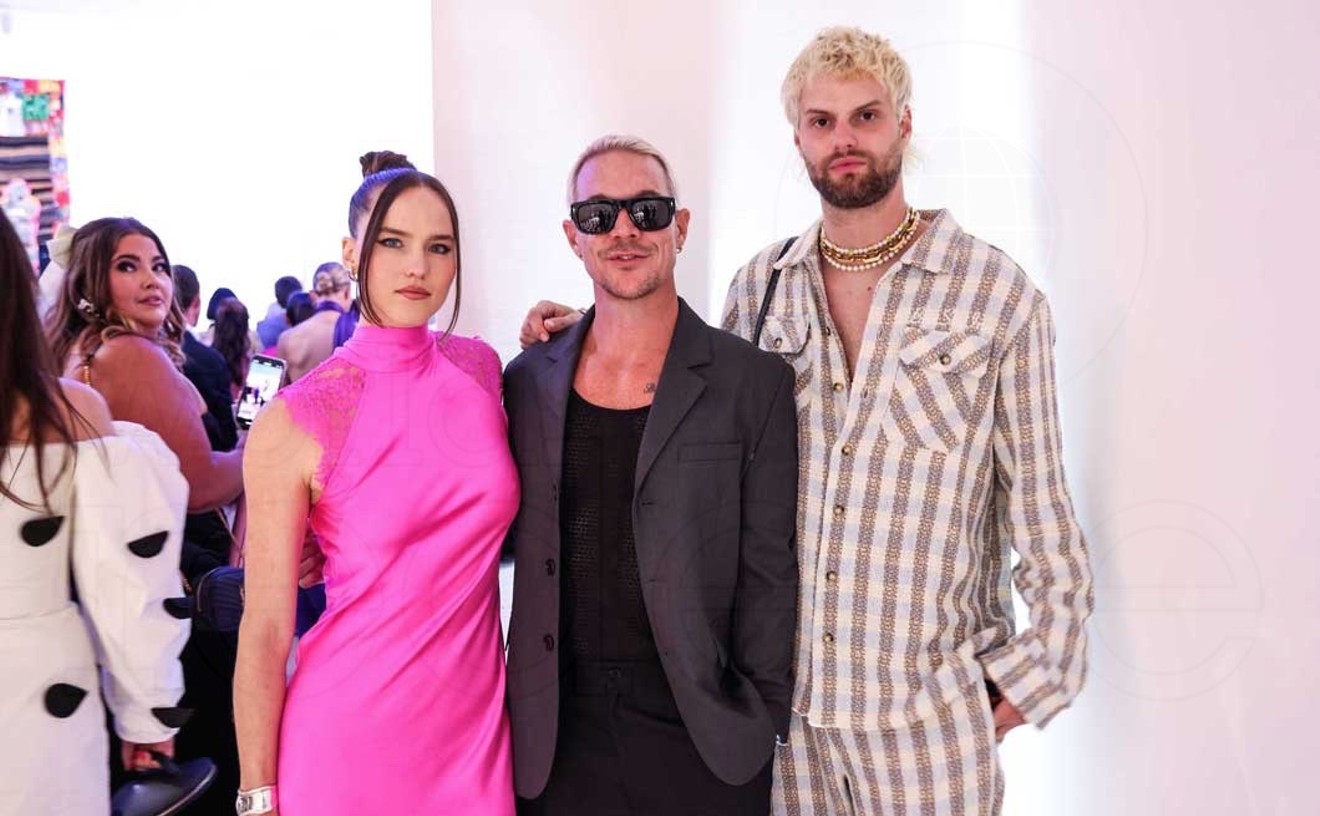As Miami prepares for the annual glitzy fest that is Art Basel, New York City is experiencing a different kind of renaissance. Famed graffiti artist Banksy, the anonymous entity who has stenciled messages and icons in locations around the world, has undertaken a monthlong "artist residency" on the streets of the Big Apple as he illegally installs one work per day in public spaces across the city.
At this time last year, Banksy and Art Basel were intertwined in the news. CONTEXT Art Miami, a satellite fair taking place in midtown Miami, was planning to show four walls allegedly stenciled by Banksy, cut out of their original locations on walls in Jerusalem and elsewhere. Initially, the fair planned to offer the works for sale, but after complaints from artists, art critics, and supporters of public art, the walls were offered as an exhibition only. Art Miami organizers claimed that exhibition of the walls was intended to address an "ongoing debate about the ethics and importance of showing 'site-specific' street art outside of its original context."
But in light of a recent and rare interview with Banksy himself published in New Times' sister newspaper the Village Voice, that's hardly the artist's view.
See also: Banksy's Probably Not Cool With His Works Appearing at CONTEXT Art Miami
Through his publicist, Banksy reached out to the Village Voice to discuss his residency, his work, and the complex issues that come with being a world-famous yet anonymous artist. Though the artist declined to answer several questions (the interview was conducted via email, after Village Voice editors confirmed they were communicating with a legitimate representative of Banksy), he directly addressed the tension between art and commerce:
"I started painting on the street because it was the only venue that would give me a show," he writes. "Now I have to keep painting on the street to prove to myself it wasn't a cynical plan. Plus it saves money on having to buy canvases."But there's no way round it -- commercial success is a mark of failure for a graffiti artist. We're not supposed to be embraced in that way. When you look at how society rewards so many of the wrong people, it's hard not to view financial reimbursement as a badge of self-serving mediocrity."
Later, Banksy acknowledges that artists -- graffiti or otherwise -- deserve to get paid for their work; otherwise, only people who could afford to create art in their spare time -- "part-timers and trust-fund kids" -- would do so.
"But it's complicated," he continues. "It feels like as soon as you profit from an image you've put on the street, it magically transforms that piece into advertising. When graffiti isn't criminal, it loses most of its innocence." As Voice writer Keegan Hamilton put it: "He wants [his work] to be discovered in alleys next to dumpsters, not displayed in a sterile museum."
Sounds like Banksy wasn't cool with that CONTEXT exhibit after all.
You can read the full interview at the Village Voice.
Follow Ciara LaVelle on Twitter @ciaralavelle.
Follow Cultist on Facebook and Twitter @CultistMiami.











